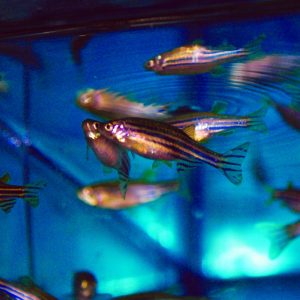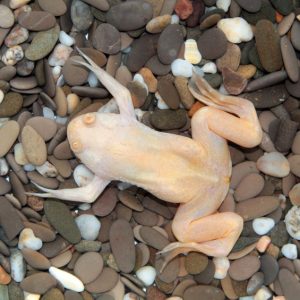Home / Animal Groups / Aquatics
Animal Group: Aquatics
Aquatic animals such as fish, frogs, squid, sea urchins, and horseshoe crabs have all helped researchers further the understanding of body processes and the effects of drugs, diseases and toxins.
These animals are involved in a wide variety of research areas, including biochemistry, neuroscience, oncology, cell biology, toxicology, genetics, anatomy, evolution, and environmental science.
Zebrafish and African clawed frogs (Xenopus spp.) are the most common aquatic species involved in today’s biomedical research.
Did you Know?

Explore Aquatics by Species

Zebrafish
Zebrafish, sharing 70% of human genetics and having externally fertilized transparent embryos, serve as invaluable models for studying gene function and genetic diseases like Duchenne muscular dystrophy, aiding in drug development. Read More →

Frog
Xenopus frogs, pivotal in vertebrate embryology, cell biology, genomics, and disease research, aid in understanding embryonic development, environmental adaptation, and the causes of diseases and birth defects. Read More →





